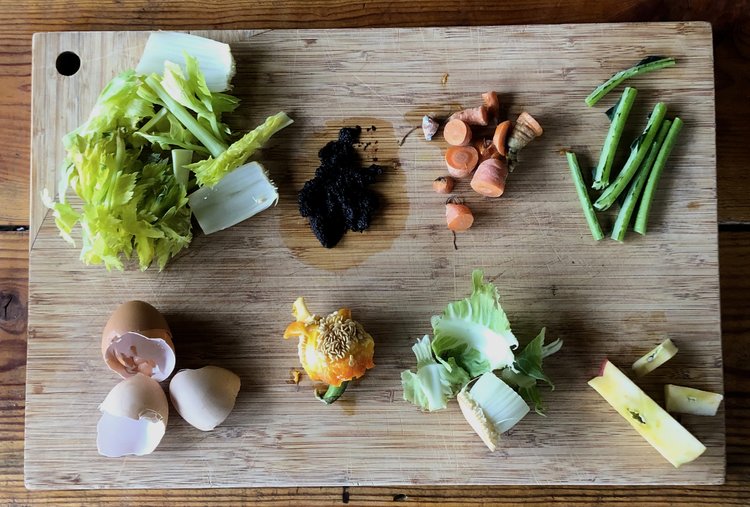You may have heard of people composting their kitchen scraps and thought, gee, I wish I could compost, but I live in an apartment. Or maybe, I’d like to try composting, but my roommate is... skeptical. Well, have no fear, I’m here to tell you that you can compost even if the space you live in is tiny, located in an urban high-rise, or shared with an unenthusiastic roommate.
Read MoreWhen I first started growing food, the farm I managed in the Pacific Northwest had patches of sandy, dry soil interspersed with waterlogged, hard packed clay. During the scorching hot summers, my thirsty plants shriveled. When the skies dumped rain the water pooled, flooding my crops. Those first couple of years on the farm were my first experience dealing with climate extremes, and my soil was not equipped for the job.
Read MoreSpreading mulch is one of my favorite farm chores. I love the way mulch smells and feels and looks. That moment my pitchfork pierces the heaping mound of leftover grass and leaves and steam spirals up into the cool morning air. The way the strong, lingering scent of cedar follows me home after a day spent spreading wood chips. The satisfying look of a tidy, weed-free field after I’ve laid down a sea of straw to cover the endless rows of potatoes and garlic. I even appreciate the sogginess of cardboard left out in the rain before it’s used to fight weeds along my garden paths.
Read MoreWhen I got out of bed this morning I checked the weather report. It’s the first thing I do every day. When you grow food, the weather assumes a make-or-break urgency that defines your life. It also forever changes the way you relate to a forecast. I never hear “early frost” without worrying it could interrupt my ripening tomatoes, or “heat spike” without fretting over wilting spinach.
Read MoreI’ve always wanted to start composting in a tumbler and a friend recently gave me an excuse to look into it. She’s living on a small island in Maine and it pains her to have to toss into the garbage beet greens from the local farm and calcium-rich lobster shells that she know could help fertilize her sandy soil. So she bought a composting tumbler and set it up in her backyard.
Read MoreWhen I was growing up I often spent muggy afternoons with my grandmother after school tucked away in the back of her garden, cutting twigs into small pieces for the compost pile. I never grasped the importance of what we were doing as a kid but loved chatting with her until the sun dipped below the horizon. As I grew older, I grew to appreciate my grandmother's productive garden. Her hydrangeas always bloomed, her plump tomatoes grew on sturdy vines, and weeds were never a problem. The secret to her success was the compost we made from those twigs, plus garden clippings, leaves and food scraps.
Read MoreSpreading mulch is one of my favorite farm chores. I love the way mulch smells and feels and looks. That moment my pitchfork pierces the heaping mound of leftover grass and leaves and steam spirals up into the cool morning air. The way the strong, lingering scent of cedar follows me home after a day spent spreading wood chips. The satisfying look of a tidy, weed-free field after I’ve laid down a sea of straw to cover the endless rows of potatoes and garlic. I even appreciate the sogginess of cardboard left out in the rain before it’s used to fight weeds along my garden paths.
Read MoreTo the right of my porch is a small path that curves down the hill to a gate made from curved cedar, the type of trees that grow in the lower canopy of our Washington forests and wind their way towards the filtered light. Inside the gate are beds that resemble what most of us think of as a typical market garden - rows of beets, lettuce, and other vegetables you’d expect to find at a northwest farmers market. But that’s where the resemblance ends.
Read More







